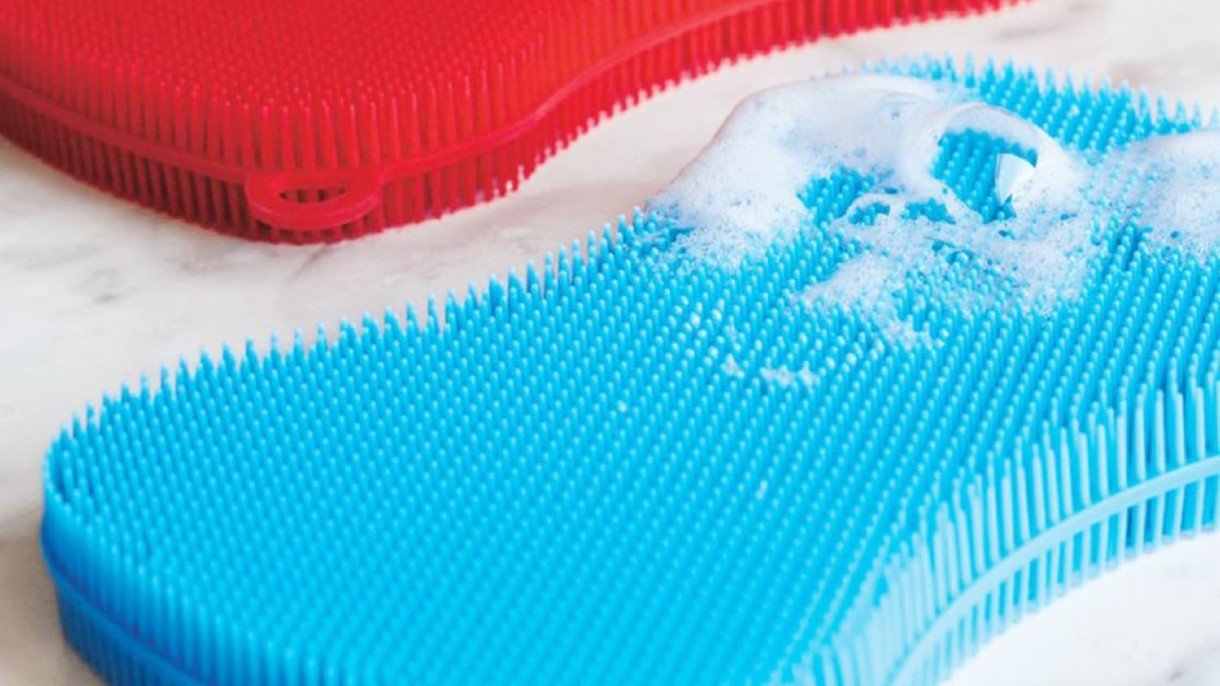Can Silicone Sponges Harbor Bacteria?

Have you ever smelled your kitchen sponge and gone, “No, that’s not right”? Well, you are not alone. These sponges absorb a lot of water and dirt and end up smelling musty if not replaced.
Truth be told, they are a cesspool of bacteria, with some studies even claiming they have more germs than your good old toilet.
So since people realized this, they have been looking for viable options, one of the most popular ones being silicone sponges. But are these sponges really that great?
We have all the answers today.
Can silicone sponges harbor bacteria?
No, silicone sponges can’t harbor bacteria because they are nonporous. And while they can get some bacteria from time to time, they can’t easily multiply.
Also, you can sanitize these sponges easily.
Why you should get silicone sponges
Silicone sponges offer 4 main benefits:
They are environmentally friendly
Since silicone sponges last long, they reduce the amount of waste you produce in the long run.
They are easy to clean
To clean a silicone sponge, just wash it with hot water or toss it in the dishwasher with your utensils.
Not only will it emerge squeaky clean but it also won’t scratch any of your pots or pans.
They are durable
Since silicone sponges don’t harbor water or bacteria, they can last a long time.
You can basically use them until they fall apart. This usually happens after they have at least reached the 1-year mark.
They are versatile
Apart from cleaning dishes and cookware, silicone sponges can be used for a variety of other purposes. For instance, when dry they can be used to pick up lint and pet hair.
Alternatively, you could use them to scrub down potatoes and other vegetables. Some people even go as far as using them to scrub their faces.
Limitations of silicone sponges
As much as we love these sponges, they are not perfect. Their major limitations are:
They use a lot of soap
Their non-porous nature makes soap slip right over them. So to properly clean, you are going to use a lot of soap.
They can’t be used to wipe surfaces
Because they are not absorbent, these sponges aren’t suitable for wiping stovetops and countertops.
How to choose a silicone sponge
If you have finally decided to switch to a silicone sponge, you need to know how to choose one. Some of the features to look out for include:
- The highest quality silicone material that is BPA-free and FDA-approved.
- Long bristles that will hold soap better.
- Good grip.
- A heavy-duty abrasiveness for tough jobs and softness for delicate jobs.
Use silicone sponges with other tools
To make the most out of your silicone sponges, don’t immediately make them the only kitchen tool you use. Combine them with your usual cloth towels and maybe even a couple of cellulose sponges when you are starting out.
As you progress, you will then get a feel of what your silicone sponge can and can’t do, and adjust accordingly.
